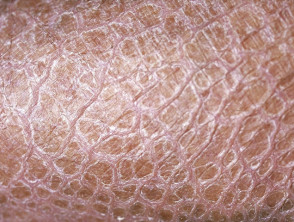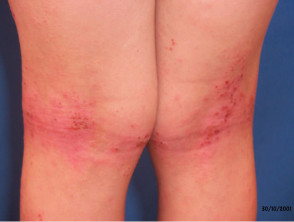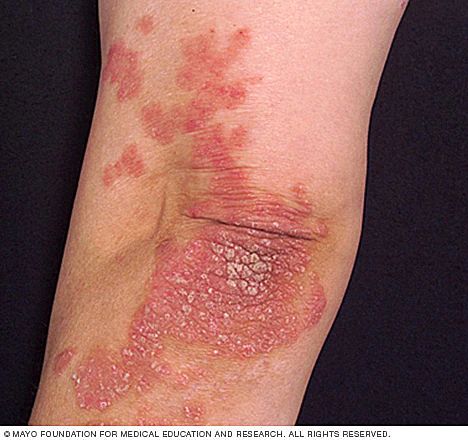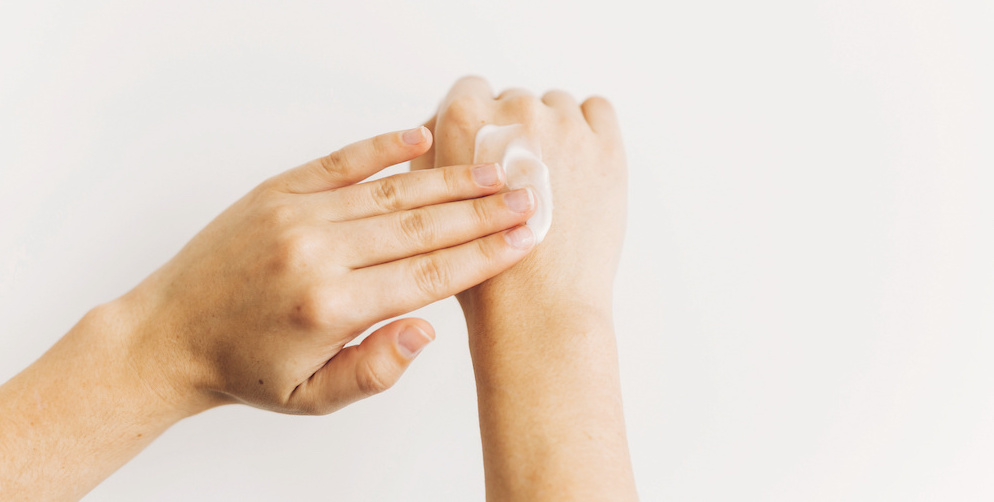Is my itchy dry skin a skin condition?
For many people winter can mean dry, itchy, rough, and sensitive skin. If you struggle with dry skin during the winter months you are definitely not alone, it is something we have all experienced and we all dread as the weather gets cold. However, it is important that we understand and can differentiate between generalised ‘dry skin’ and a possible skin condition or disorder that may first appear as simply dry skin.
In this blog we will cover a few common skin disorders that you may or may not heard of before.
ICHTHYOSIS VULGARIS
What is it?
Ichthyosis Vulgaris is a condition which you may not have heard of but can appear in at least 20 variations. Ichthyosis is categorised by persistently dry, thickened, scaly skin.
Most cases of ichthyosis are hereditary and begin in childhood. In rare instances, adults can acquire the condition as a side effect of certain medications or other medical conditions. People with this condition lose the protective barrier that keeps moisture in their skin. They also make new skin cells too quickly or shed old cells too slowly. This leads to a build-up of thick, scaly skin. The scaly appearance of the skin is where Ichthyosis gets its name from, being the Greek term for ‘fish’.

Treatment
The aim of treating Ichthyosis is to relieve the discomfort involved with the dry skin and avoid further thickening and cell build-up. Exfoliation and moisturising with emollients containing a high lipid content on a regular, daily basis is highly recommended for less severe cases. Salt baths have also offered relief in many cases.
*Tip: Wrapping the skin in glad wrap for 1-2 hours following application of creams and lotions will allow for deeper, enhanced skin hydration.
Medicated creams containing salicylic acid, glycolic acid, lactic acid or urea may relieve dryness and ease the skins scaly texture. Severe cases may need vitamin A derivatives or oral retinoids.
ECZEMA
What is it?
Eczema is a skin condition most people have heard of, you may have experienced this condition at some point in your life or may have had children who have suffered. Eczema can be categorised as either acute, appearing as a rapidly evolving red rash which may be swollen and blistered or chronic eczema referring to a long-standing area of irritability often darker and thicker than the surrounding skin. A state in-between acute and chronic eczema is known as subacute eczema. Eczema is particularly prevalent in children and seems too often be associated with inherited factors such as family history of dermatitis and asthma. The condition commonly appears localised in the joints such as behind the knees, and inner elbows, appearing as persistent red, dry, itchy, tender skin.

Treatment
For initial relief of discomfort, the following is recommended, avoid bathing too often and be sure water is only lukewarm, use only soap free cleansers when washing and nothing fragranced. Apply moisturiser to your skin after every bath however be mindful of what you are using, again, no fragranced products. Avoid wool or synthetics fibres in terms of clothing as these will only cause further irritation. Protect the affected areas from dust, water, injury and detergents therefore avoid washing dishes if possible. An appointment with your GP or Dermatologist is always recommended in severe or persistent cases of Eczema. Steroid creams, antibiotics and antihistamines may be prescribed to you.
PSORIASIS
What is it?
Psoriasis is a chronic inflammatory skin condition that causes red, itchy scaly, thickened skin which can occur anywhere on the body; however, the most commonly affected areas are the lower back, elbows, knees, legs, soles of the feet, scalp, face and palms.
The scale appearance to a psoriasis skin is typically silvery white, except in skin folds where the plaques often appear shiny and they may have a moist peeling surface. It is considered a multifactorial immune-mediated inflammatory disease with genetic factors playing an important role in an individual’s type of psoriasis and their response to treatment. This persistent condition tends to be a life-long disorder, fluctuating in extent and severity throughout a life time. Symptoms of Psoriasis may be different from person to person due to there being several different types that you could be experiencing.

Treatment
Those suffering from Psoriasis are encouraged to truly educate themselves on the condition and its treatment as it may be something they experience sporadically for the rest of their lives. Some general advice in controlling the condition include, maintaining a healthy weight as well as avoiding excessive alcohol consumption and smoking. Mild Psoriasis is generally treated using topical agents such as salicylic acid, corticosteroids, calcipitriol cream, emollients and other combination therapies. Phototherapy, systemic therapy and medications such as antibiotics and prescribed creams are used at different times to treat flare ups in chronic cases.
If you are suffering from a skin condition and would like further advice or assessment please contact Geelong Veins Skin & Laser on 5229 6866.

Charlotte Woolfe
